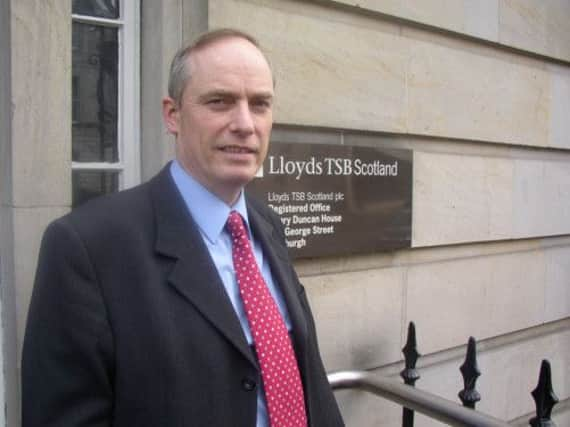Scots PMI shows firms still growing at record rate


It is the highest score recorded by the index, which started in 1998. A figure above 50 indicates growth.
The increase reflected both higher service sector activity and greater goods production – although the manufacturing sector expanded at a slower pace than in August.
Advertisement
Hide AdAdvertisement
Hide AdDonald MacRae, chief economist at Bank of Scotland, said: “September’s PMI showed the private sector of the Scottish economy continuing to expand across both manufacturing and service sectors, providing further evidence of the strengthening of the recovery.
“Output and new business rose at survey record-equalling rates accompanied by growing employment and rising new export orders. The PMIs of the last six months suggest the Scottish economy not only grew in quarter two this year but saw that growth accelerate in quarter three. The recovery is gaining momentum.”
The pace of job creation was also unchanged since August, remaining well above the long-run average. Higher cost pressures emerged, but prices charged across the private sector economy rose only marginally on the month.
The level of new business at Scottish firms also matched August’s series record. September’s rise was the tenth in successive months, and supported by further growth in new export orders at manufacturers.
The growing demand meant Scottish firms have been building up backlogs of work in recent months, and the pace of the build-up accelerated last month.
Higher food, fuel and labour costs, meanwhile, helped lift the rate of input price inflation in Scotland to the fastest in five months, and one that was well above the UK average.
However, the bank said businesses largely refrained from passing on increased cost burdens to clients, recording on average only a marginal increase in output prices due to a competitive market environment.
The survey comes ahead of official figures for Scotland’s gross domestic product (GDP) in the second quarter of 2013, due on Wednesday. The economy north of the Border is expected to have more or less matched the growth of 0.7 per cent seen across the UK as a whole.
Advertisement
Hide AdAdvertisement
Hide AdMeanwhile, economic think tank the EY Item Club boosted its estimate for UK GDP growth this year to 1.4 per cent, up from 1.1 per cent three months ago, saying that the improving housing market should deliver a pick-up in consumer confidence.
The group said initiatives such as the Help to Buy mortgage guarantee scheme would result in house prices rising by 3.5 per cent this year and by 6.6 per cent in 2014.
However, Peter Spencer, Item’s chief economic adviser, said “hysteria” that the latest phase of Help to Buy could lead to another housing bubble was unfounded.
He said: “Despite the recent criticism of these initiatives, the chances of seeing another housing market bubble are extremely slim.
“House prices and transactions are only just recovering from the credit crunch and will be paltry in comparison to those of a decade ago. Household finances are also in much better shape, with debt to income ratios now at sustainable levels.”
The Item Club, which uses the Treasury’s economic model for its forecasts, said UK’s short-term growth will continue to be fuelled by the consumer.